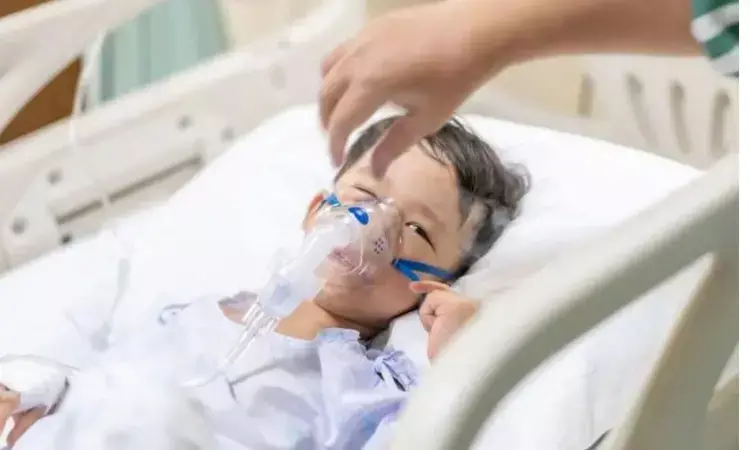- Home
- Medical news & Guidelines
- Anesthesiology
- Cardiology and CTVS
- Critical Care
- Dentistry
- Dermatology
- Diabetes and Endocrinology
- ENT
- Gastroenterology
- Medicine
- Nephrology
- Neurology
- Obstretics-Gynaecology
- Oncology
- Ophthalmology
- Orthopaedics
- Pediatrics-Neonatology
- Psychiatry
- Pulmonology
- Radiology
- Surgery
- Urology
- Laboratory Medicine
- Diet
- Nursing
- Paramedical
- Physiotherapy
- Health news
- Fact Check
- Bone Health Fact Check
- Brain Health Fact Check
- Cancer Related Fact Check
- Child Care Fact Check
- Dental and oral health fact check
- Diabetes and metabolic health fact check
- Diet and Nutrition Fact Check
- Eye and ENT Care Fact Check
- Fitness fact check
- Gut health fact check
- Heart health fact check
- Kidney health fact check
- Medical education fact check
- Men's health fact check
- Respiratory fact check
- Skin and hair care fact check
- Vaccine and Immunization fact check
- Women's health fact check
- AYUSH
- State News
- Andaman and Nicobar Islands
- Andhra Pradesh
- Arunachal Pradesh
- Assam
- Bihar
- Chandigarh
- Chattisgarh
- Dadra and Nagar Haveli
- Daman and Diu
- Delhi
- Goa
- Gujarat
- Haryana
- Himachal Pradesh
- Jammu & Kashmir
- Jharkhand
- Karnataka
- Kerala
- Ladakh
- Lakshadweep
- Madhya Pradesh
- Maharashtra
- Manipur
- Meghalaya
- Mizoram
- Nagaland
- Odisha
- Puducherry
- Punjab
- Rajasthan
- Sikkim
- Tamil Nadu
- Telangana
- Tripura
- Uttar Pradesh
- Uttrakhand
- West Bengal
- Medical Education
- Industry
Acute respiratory failure in early childhood tied to lower IQ: JAMA

USA: When compared to matched siblings, survival of pediatric intensive care unit (PICU) admission for respiratory failure and discharge without severe cognitive impairment was linked with considerably lower later IQ scores in children, says an article published in the Journal of American Medical Association.
Every year, about 23 700 children in the United States are subjected to invasive mechanical ventilation for acute respiratory failure, with uncertain long-term repercussions on neurocognitive function. As a result, R. Scott Watson and colleagues undertook this study to compare the neurocognitive results of children who survive PICU admission for acute respiratory failure to those of their biological siblings.
A prospective sibling-matched cohort research was carried out at 31 US PICUs and related neuropsychology testing institutions. Patients had to be 8 years old or younger, with a Pediatric Cerebral Performance Category score of 1 (normal) before PICU admission and less than or equal to 3 at PICU release, eliminating patients with a history of neurocognitive abnormalities or who were readmitted and required mechanical ventilation. Biological siblings ranged in age from four to sixteen years old at the time of testing, with a Pediatric Cerebral Performance Category score of one and no history of mechanical ventilation or general anesthesia. From September 2, 2014, until December 13, 2017, 121 sibling pairs were recruited and began neuropsychological testing on March 14, 2015. The last follow-up was scheduled on November 6, 2018. PICU treatment for acute respiratory failure and Critical illness were seen in the participants.
The primary outcome was IQ, as measured by the Wechsler Intelligence Scale's age-appropriate Vocabulary and Block Design subtests. Measures of attention, learning and memory, processing speed, visuospatial skills, language, motor skills, and executive function were among the secondary results. The evaluations were placed between 3 and 8 years after the patient was discharged from the hospital.
The key findings are as follow:
1. Patients were admitted to the PICU at a median (IQR) age of 1.0 (0.2-3.2) years, had invasive mechanical ventilation for a median (IQR) of 5.5 (3.1-7.7) days, and were tested at a median (IQR) age of 6.6 (5.4-9.1) years.
2. At a median (IQR) age of 8.4 (7.0-10.2) years, matched siblings were tested.
3. Patients had a lower estimated IQ on average than matched siblings.
4. Patients exhibited considerably lower scores on nonverbal memory, visuospatial abilities, and fine motor control than matched siblings, but significantly better scores on processing speed.
5. The remaining secondary outcomes, such as attention, expressive language, verbal memory, and executive function, revealed no significant changes.
In conclusion, findings of this study were based on a small magnitude of difference and unknown clinical complication. Further in-depth study is needed to come to solid evidence.
Reference:
Watson RS, Beers SR, Asaro LA, et al. Association of Acute Respiratory Failure in Early Childhood With Long-term Neurocognitive Outcomes. JAMA. 2022;327(9):836–845. doi:10.1001/jama.2022.1480
Medical Dialogues consists of a team of passionate medical/scientific writers, led by doctors and healthcare researchers. Our team efforts to bring you updated and timely news about the important happenings of the medical and healthcare sector. Our editorial team can be reached at editorial@medicaldialogues.in.
Dr Kamal Kant Kohli-MBBS, DTCD- a chest specialist with more than 30 years of practice and a flair for writing clinical articles, Dr Kamal Kant Kohli joined Medical Dialogues as a Chief Editor of Medical News. Besides writing articles, as an editor, he proofreads and verifies all the medical content published on Medical Dialogues including those coming from journals, studies,medical conferences,guidelines etc. Email: drkohli@medicaldialogues.in. Contact no. 011-43720751


